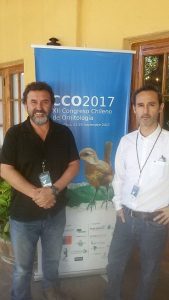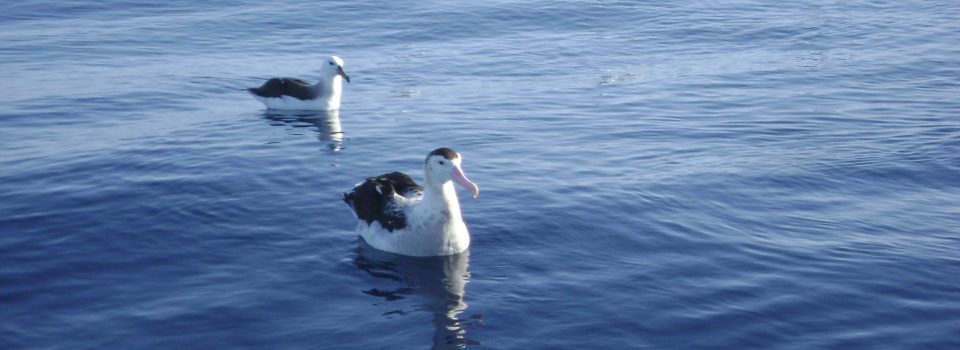IFOP researchers participate in XII Chilean Ornithology Congress of in Santa Cruz Chile
November 27th, 2017 Chile represents one of the most productive marine ecosystems in the world and an important feeding area for 15 species of albatrosses and petrels. In addition, our country has several world-class seabird breeding sites under its jurisdiction.
Chile represents one of the most productive marine ecosystems in the world and an important feeding area for 15 species of albatrosses and petrels. In addition, our country has several world-class seabird breeding sites under its jurisdiction.
Between November 21rd and 23th, XII Ornithological Congress (CCO2017) and “Interactions between fisheries and seabirds: exploring space-time patterns on the south-central coasts 1st Symposium took place in Santa Cruz city. Chile”.
This Congress, together with “Seabird Interaction Symposium” developed during this triennial meeting, managed to bring together researchers and students interested in birds from all over Chile, who shared results about the discipline’s latest advances and scientific research. The meeting accounted with the participation of about 150 people among official members of Aves Chile, organizations linked to conservation, academics and students.
Dr. Rodrigo Vega and Luis Adasme Fisheries Assessment Department professionals participated in the Symposium by showing and highlighting IFOP research developed in seabirds incidental capture and their interactions with purse-seine and trawl fisheries, respectively. The symposium organized by Dr. Alejandro Simeone (UNAB), was attended by leading researchers from other institutions such as the UCN (Dr. Guillermo Luna), the OIKONOS NGO (Verónica López) and Albatross Task Force Chile (Cristian Suazo and Luis Cabezas).
Luis Adasme said “participating in these instances allow us to show and disseminate to the scientific community research work developed by IFOP in this particular research line, as well as mitigation of bycatch advances and best practices associated with fishing operations seabirds bycatch “.
Rodrigo Vega commented, “These are the opportunities that allow us to move forward and coordinate actions among different institutions, in order to finally obtain necessary inputs to establish mitigation measures both within mitigation framework plans for discarding and bycatch, as well as National Seabird Action Plans for trawling and purse seine fisheries.
Finally, he said that Chile represents one of the most productive marine ecosystems in the world and an important feeding area for 15 species of albatrosses and petrels. Likewise, our country has several worldwide relevance seabirds reproduction sites under its jurisdiction “.
